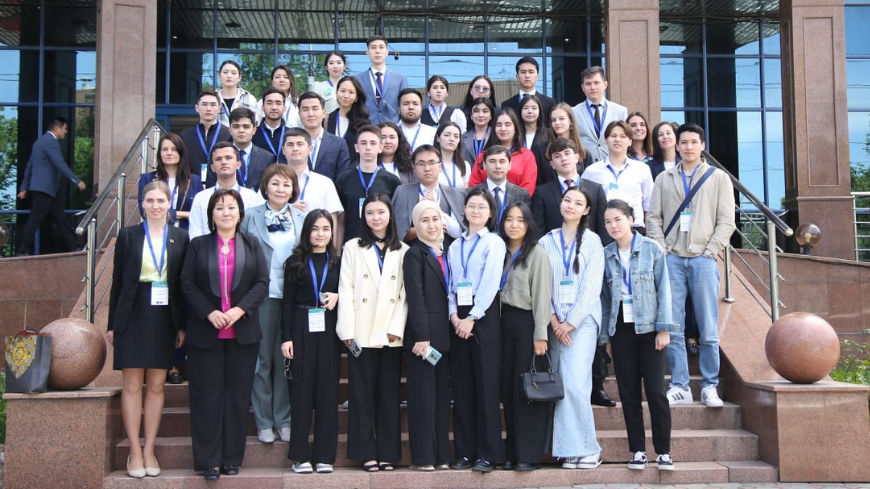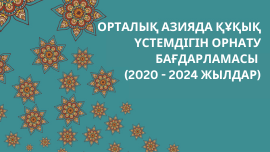On 14-18 May 2024, the Council of Europe, in co-operation with the Human Rights Commission under the President of the Republic of Kazakhstan, organised a Spring school on human rights and environment for law students from the Central Asia region, attended by 41 law. They come from 14 different law faculties in the five countries of the region - Kazakhstan, Kyrgyzstan, Tajikistan, Turkmenistan and Uzbekistan.
The objective of the Spring school was to familiarise these students with the case law of the European Court of Human Rights on environment and climate change and provide them with a comprehensive overview of the global developments in the field and of international legal instruments applicable in their countries.
Over five days, the students received first-hand information from European and international experts, including a judge of the European Court of Human Rights, who gave lectures and engaged the participants in interactive discussions and practical workshops. On the last day of the school, the participants had the opportunity to put their knowledge into practice in a simulated court hearing and received certificates of participation issued by the Council of Europe.
The Spring school was opened by Mr Sayasat Nurbek, Minister of higher education and science of the Republic of Kazakhstan, who underlined the importance given by Kazakhstan to legal education and human rights. Mr Igor Rogov, Chairman of the Human Rights Commission under the President of the Republic of Kazakhstan, encouraged all students, regardless of their specialisation, to acquire a minimum knowledge of human rights and the European Convention on Human Rights. Mr Kestutis Jankauskas, Ambassador of the European Union to Kazakhstan, referred to the numerous programmes relating to environmental issues in Central Asia supported by the European Union and the willingness to include universities in these programmes.
The activity was organised by the action "HELP in Central Asia" in the framework of the Central Asia Rule of Law Programme 2020-2024, a joint initiative co-funded by the European Union and the Council of Europe and implemented by the Council of Europe.



